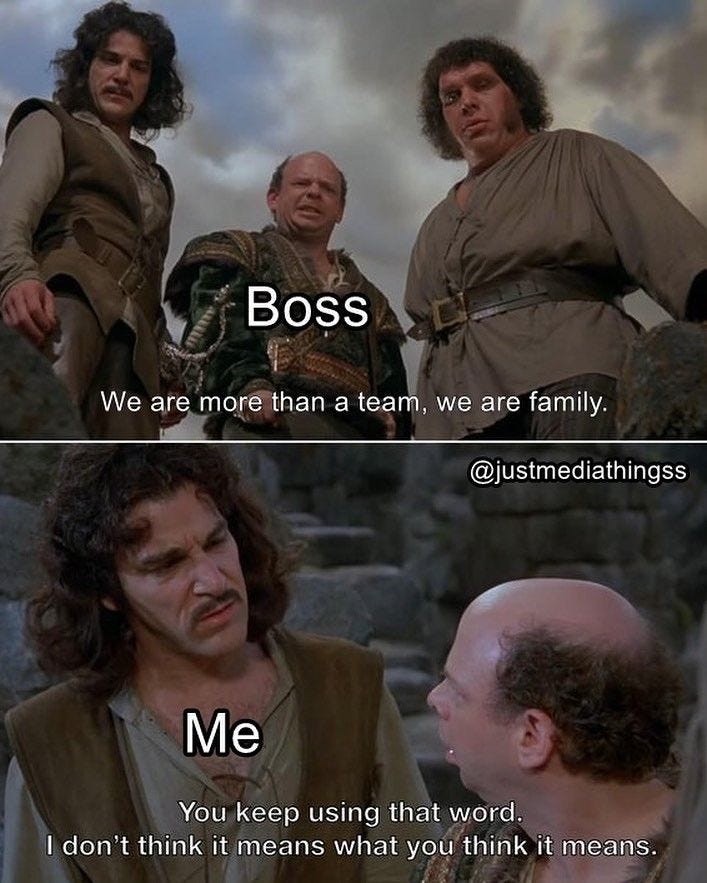Layoffs are Unnecessary and Need to Carry Consequences for Senior Leadership, and the story of my only layoff in 34 years.
When companies lay off workers and then immediately hire, or worse yet buyback stock with excess profits, they tell us exactly who they are.
Lately I’ve heard layoffs discussed extensively on various media and even by colleagues and friends in the agile, and lean, consulting industry and realized there’s a lot of BS being consumed around layoffs.
There is plenty of data and evidence-based research showing the harm that layoffs cause to business outcomes and, more importantly, employee mental and physical health.
Jeffrey Pfeffer wrote an excellent book that touches on layoffs called “Dying for a Paycheck: How Modern Management Harms Employee Health and Company Performance–And What We Can Do About It” and he talks about these effects.
He cites research on the deleterious health effects on laid off employees.
I recently heard two excuses for layoffs casually offered:
Companies hired too much and during the uncertainty of the markets in 2023 realized they needed to have more cash on hand so laid off employees.
Companies wanted to build everything they could want but realized in 2023 they needed to be more focused in their product strategies requiring them to lay off employees.
To address the first of these two claims…
Many companies are realizing record profits, paying record bonuses and dividends to their shareholders and buying back obscene amounts of stock (A practice that was illegal stock price manipulation until 1982 when Regan’s FTC did them some nice deregulation)
Google laid off twelve-thousand employees, that means in the US those employees lost their health insurance as well as their jobs. Unless they paid exhoribtant COBRA premiums or were fortunate enough to get to pay pretty high prices on their state marketplace.
That same year, Alphabet (Google’s parent company) bought back sixty-billion dollars worth of stock. That’s five-million dollars for every employee who’s family lost their health insurance and livelihood.
Just in case I wasn’t clear, stock buybacks aren’t keeping cash, they’re manipulation of stock values to enrich executives and wealthy shareholders.
My case against option number two is that it implies companies suddenly became strategically coherent and began to limit the amount of investments they pursue with their employee capacity. I don’t know anyone in an enterprise who experienced a reduction in workload after a layoff. They’re essentially just told to work harder and be thankful to still have a job. This sounds like 19th century railroad tyrants to me.
As a consultant I’ve been fired many many times. As Michael Tardiff once said “We show up fired, we just don’t know yet why.” and he was absolutely right.
But despite surviving eight rounds of layoffs at WebTrends and Subsequently NetIQ I haven’t ever been laid off in my entire career until January 20th 2023.
Unify Consulting was the best employer I’d had, largely thanks to some of the early leaders I worked for there, and, for better or worse, as long as you brought in revenue, they left you alone.
While I was there, I had a pretty steady stream of happy clients and even sold some engagements. I had hired on hoping to build a higher-end strategic product consulting practice but quickly realized senior executive leadership was not interested in this.
Still, having started in January of 2020, it was the perfect place to land for the pandemic. I was able to make some progress, and some things went well. I generally avoided the executives at clients and, in doing so, managed to stay safe, leading teams of coaches and focusing on product management.
In November of 2021, I was diagnosed with stage four colorectal cancer with extensive metastasis to every part of my liver. This is a terminal diagnosis, and after briefly considering assisted suicide to prevent the financial ruin of my family, I decided to enter aggressive treatment.
My work performance diminished somewhat during chemotherapy, but I was generally able to satisfy clients and keep doing my job. I had a couple of shocking (to myself) instances of missing a meeting or a sales call before I realized chemotherapy and the stresses of a collapsing marriage and a terminal diagnosis have significant impacts on my cognitive function, especially memory.
Just before my extensive eight-hour open abdominal surgery to remove fourteen inches of sigmoid colon, a segment of my liver, and the ablation of twelve calcified tumors on every side of my liver, I was transferred to a delightful new client. This client had extensive needs, and I struggled to meet them during surgical recovery. I had thought I could recover from surgery and still serve my client, but I was wrong. I took periodic family medical leave to cover my time when I was out of paid time off, but ultimately, I decided to leave the client and save a good friend and colleague from a long stint on the paid bench so I could recover while on FMLA. To be clear, while the management at Unify assured people not to fear being on the paid bench because it caused staffing shortages when consultants would find other jobs for fear of being laid off while on the paid bench, their tone and behavior made it clear that the paid bench was a firing line. I suspect the paid bench is essentially over today after such extensive layoffs from that bench.
After a while, I tried to get back to billing clients, so I agreed to come off FMLA, which put my employment at risk since I was no longer legally protected from layoff. Unify struggled to find leads for me and was opposed to allowing consultants to participate in the sales process, so it started to look like their tolerance for paying me not to work was waning.
In retrospect, I should have filed a long-term disability claim the week it seemed likely I’d be laid off. Still, instead, when the man who’d shed actual tears over my terminal cancer informed me, “Today is your last day working for Unify Consulting,” I naively asked, “Oh, well, is there any chance I could file for LTD instead since I still have stage four colon cancer and was only available to layoff due to trying to bill clients for Unify?” I watched the blood run out of his face as the HR, sorry “people team” representative lizard, coldly and almost angrily, said, “No, you are no longer employed by Unify and are therefore no longer eligible for any of your Unify benefits.”
I am proud of some of the work I did with Unify including remaining profitable during 36 weeks of the most brutal triple-chemo available to colorectal cancer sufferers and I never expected to get any consideration for that when the layoff hammer dropped. Still worthy to point out that I received no such consideration.
Unify made over a hundred million dollars in 2023. I was approved for permanent federal Social Security Disability in less than forty-eight hours. Instead of a six-figure LTD claim, my boys and I get around thirty-two thousand dollars a year in federal SSDI, an amount of money that makes me too well-off to qualify for Medicare, so I have to spend twelve thousand dollars a year for garbage marketplace health insurance for my family.
I was never under any delusion that my value to Unify was anything but my ability to generate revenue by extracting capital from clients. However, I had hoped that “consultant first” would at least give me a second thought about filing a disability claim. I was wrong, and I would not make that mistake again if I had the opportunity.
Luckily, I had some retirement set aside, and given that I’m never going to see sixty-five, I can take time off and supplement my disability to afford to make some final memories with my boys for them to keep long after I’m gone.
I would likely not have outlived my finances if I’d been able to file a disability claim against my corporate policy, but there’s no telling if I’ll be able to outlive them anyway; it’s certainly a concern that will have to resolve in the next couple of years one way or another. I’m not allowing myself to stress about it; worrying about capital is pre-cancer me.
Without major changes to labor laws and social safety nets companies will continue to harm families whenever it’s profitable for them to do so.
If you ever wonder whether employers care about you, remember, even when you have terminal cancer, it’s still “just business” and “nothing personal.” last I checked, Unify’s senior leadership team are all still gainfully employed.







I am really grateful for your posts. You help me keep a level head about exactly what I am engaged with. Thank you for making the effort to write.